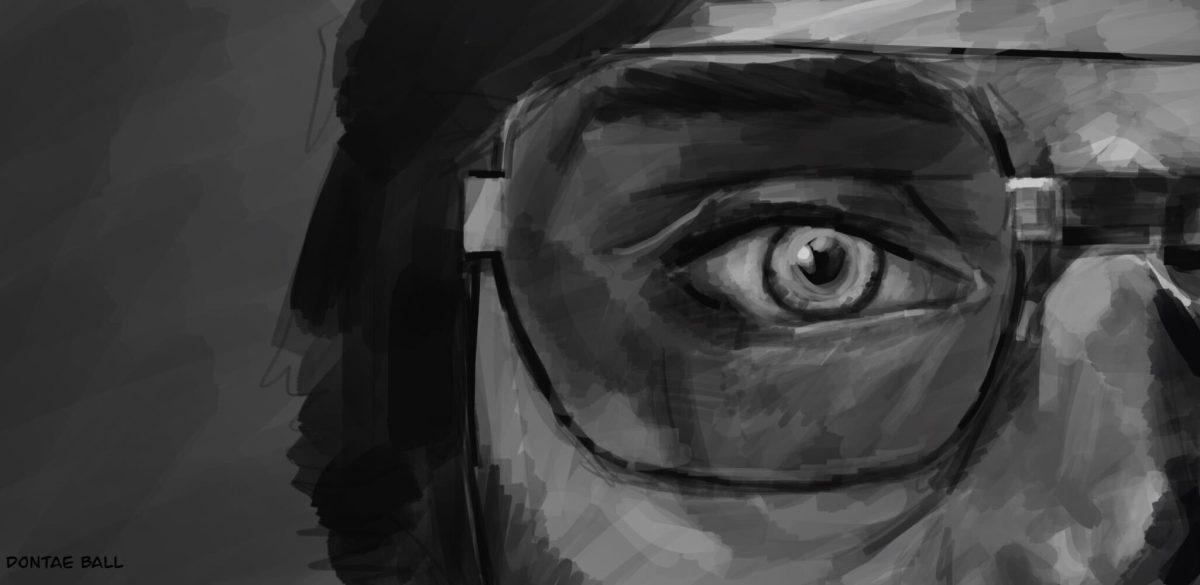In September, Netflix released a limited series about the infamous serial killer Jeffrey Dahmer titled “DAHMER — Monster: The Jeffrey Dahmer Story,” and it has left everyone with a lot to say.
Simultaneously, it also has quickly become one of the platform’s most popular shows they have ever released. According to BreAnna Bell and Selome Hailu with Variety, the show has already become Netflix’s ninth most-watched English language series since its September release.
I know that many people have that car crash compulsion where you cannot, or perhaps just do not, look away from a disaster. I have found myself getting sucked into true crime to a certain extent. Why, though, do we keep seeing so many shows, documentaries and movies made about some of the worst people in society? The market has become oversaturated.
Yes, there are nonfictional depictions of true crime, as in “Dahmer,” but there is also Netflix’s “You,” another show about a serial killer, only this one is fictional. Penn Badgley plays Joe, the main character, and he also played Dan on “Gossip Girl.” The show is centered around a serial killer fixating on women and, eventually (usually), murdering them. Dan from “Gossip Girl” is kind of hot, even when you know he is a serial killer, and I believe that is what Netflix thinks is part of the point.
The slow glamorization and romanticization of murderers, real or fictional, clouds judgment between reality and fiction. If you can watch “You” and side with Dan from “Gossip Girl” playing a serial killer, why couldn’t you side with the fake Dahmer? That is a dangerous line to blur.
Zac Efron killing people as Ted Bundy in Netflix’s “Extremely Wicked, Shockingly Evil and Vile” does not result in actual death; we know that. But what does it mean that the filmmakers chose an actor that was so desirable? This highlights some hard to articulate but objectively obvious moral rub.
Serena Smith of Dazed said, “It’s neither novel or groundbreaking to say that romanticizing and glamourising [sic] serial killers is bad.” She is absolutely correct. Everyone knows it is bad, but they do it anyway because that is what the genre is. That is the hard truth at the center of the true crime debate: these topics should not be fun to watch. To make a true story like this watchable, let alone to make it the ninth most-watched show in Netflix’s history, you have to change it. You have to package it.
When these types of shows, movies and documentaries are made, the main focus is money, of course. The harsh truth is that ethical true crime serves first to bring awareness back to the victims, and, if they are alive, must be built around respecting their life story.
Rita Isbell is one of these victims. Her brother Erol Lindsey was one of Dahmer’s victims whose story was used in the show, including an eerie recreation of an emotional testimony Isbell gave at Dahmer’s 1992 trial.
In a recent article with Insider, Isbell said, “I feel like Netflix should’ve asked if we mind or how we felt about making it. They didn’t ask me anything. They just did it.”
These movies and shows will never stop being made, but hopefully, the purpose behind creating them can be changed. They should contact the families who have suffered from these tragedies first before going ahead on a project. They should put themselves in the mindset of the victims’ families and stop glamorizing horrific people. The public needs to use these projects to educate themselves. They should be used to help us understand and guide us in this world so we, hopefully, never find ourselves in the position of the victims.
Categories:
True crime genre presents glaring moral conundrum
About the Contributor

Grace Sullivan, Staff Writer
Grace Sullivan is a senior communication major. Grace is currently a staff writer for The Reflector.
0
Donate to The Reflector
Your donation will support the student journalists of Mississippi State University. Your contribution will allow us to purchase equipment and cover our annual website hosting costs.
More to Discover







